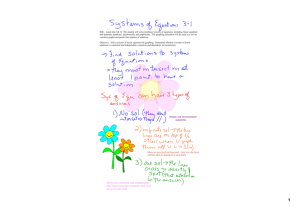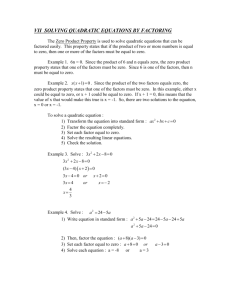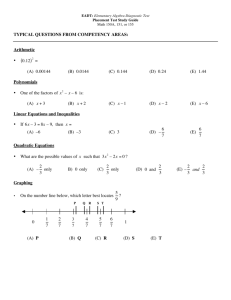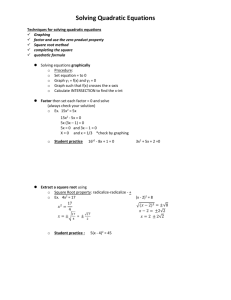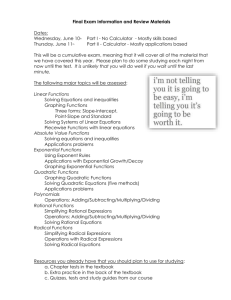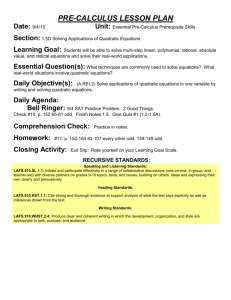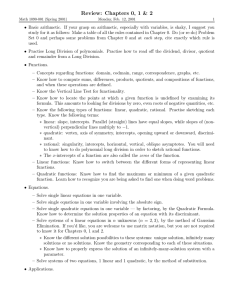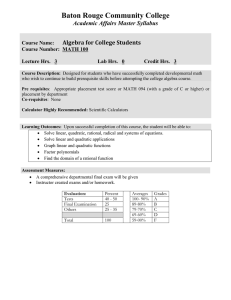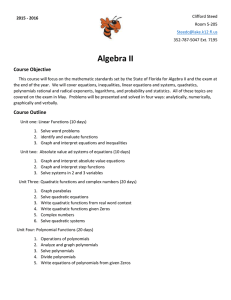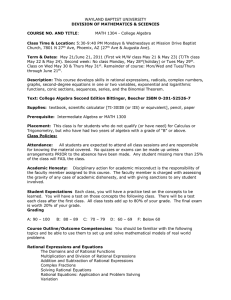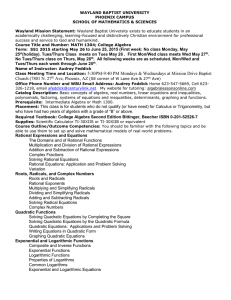Week 1 First Messages
advertisement
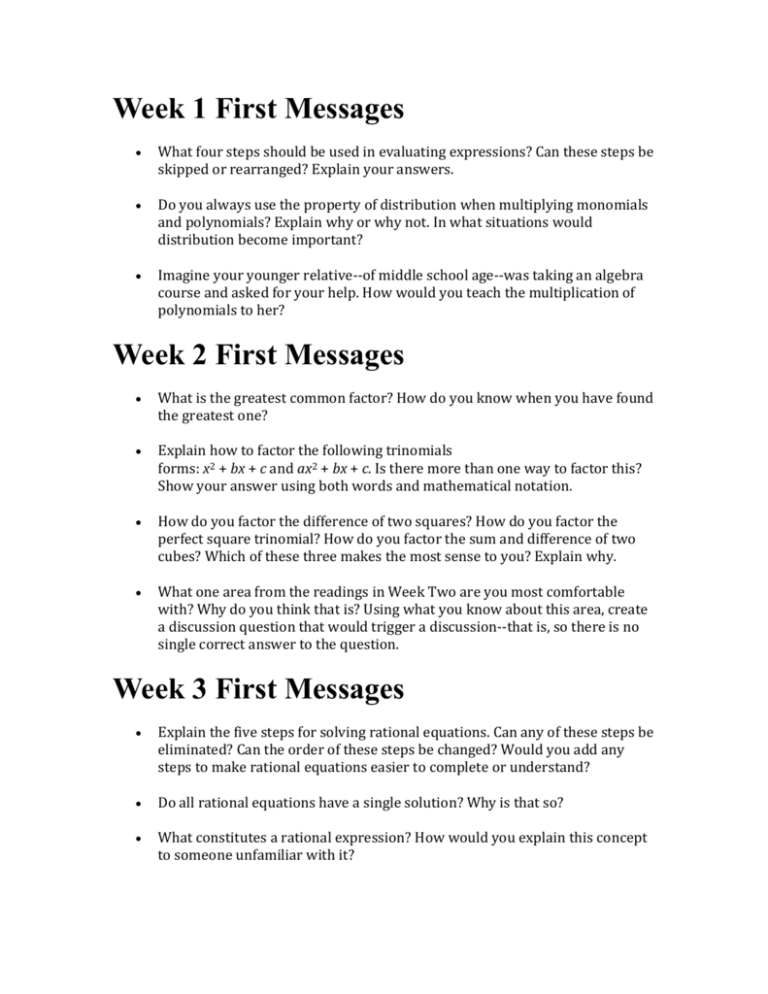
Week 1 First Messages What four steps should be used in evaluating expressions? Can these steps be skipped or rearranged? Explain your answers. Do you always use the property of distribution when multiplying monomials and polynomials? Explain why or why not. In what situations would distribution become important? Imagine your younger relative--of middle school age--was taking an algebra course and asked for your help. How would you teach the multiplication of polynomials to her? Week 2 First Messages What is the greatest common factor? How do you know when you have found the greatest one? Explain how to factor the following trinomials forms: x2 + bx + c and ax2 + bx + c. Is there more than one way to factor this? Show your answer using both words and mathematical notation. How do you factor the difference of two squares? How do you factor the perfect square trinomial? How do you factor the sum and difference of two cubes? Which of these three makes the most sense to you? Explain why. What one area from the readings in Week Two are you most comfortable with? Why do you think that is? Using what you know about this area, create a discussion question that would trigger a discussion--that is, so there is no single correct answer to the question. Week 3 First Messages Explain the five steps for solving rational equations. Can any of these steps be eliminated? Can the order of these steps be changed? Would you add any steps to make rational equations easier to complete or understand? Do all rational equations have a single solution? Why is that so? What constitutes a rational expression? How would you explain this concept to someone unfamiliar with it? How would you define what a rational exponent is? Is there such a thing as an irrational exponent? Explain. What are the two steps for simplifying radicals? Can either step be deleted? If you could add a step that might make simplifying radicals easier or easier to understand, what step would you add? Week 4 First Messages Explain the four steps for solving quadratic equations. Can any of these steps be eliminated? Can the order of these steps be changed? Would you add any steps to make solving quadratic equations easier or easier to understand? Which of the four operations on functions do you think is the easiest to perform? What is the most difficult? Explain why. Write a word problem involving a quadratic function. How would you explain the steps in finding the solution to someone not in this class? Is the compound interest formula--such as would be used to calculate a car loan--an example of a function? If yes, of what type of function is it an example? Why might you identify it with that type of function? What is the relationship between exponents and logarithms? How would you distinguish between the two, using both a graph and a sequence? How are these concepts of direct, inverse, and joint variation used in everyday life? Provide examples for each. Other than those listed in the text, how might the Pythagorean theorem be used in everyday life? Provide examples of each. Quadratic equations, which are expressed in the form of ax2 + bx + c = 0, where a does not equal 0, may have how many solutions? Explain why. What is the quadratic formula? What is it used for? Provide a useful example that is not found in the text. Week 5 First Messages From the concepts you have learned in this course, provide a real-world application of something that you think has been the most valuable to you? Why has it been valuable? How do you think you will use the information you learned in this course in the future? Which concepts will be most important to you? Explain why. Which do you anticipate will be the least important? Explain why. Can you think of one real-world example of when the concept of functions might be useful? Do you think you will ever use functions in your life to solve problems? If yes, explain how and why; if no, explain why not. What one concept learned in this course was the easiest for you to grasp? Why do you think it was easy for you? Which was the hardest? What would have made that hard-to-learn concept easier to learn? If your neighbor asked you to explain what you learned in this course, what would you tell him or her?
